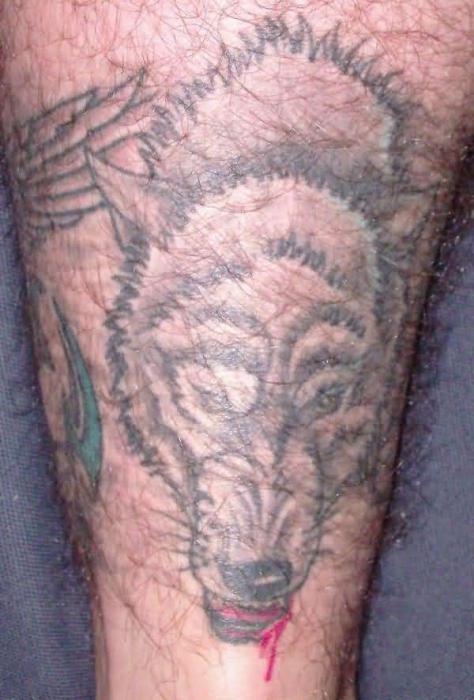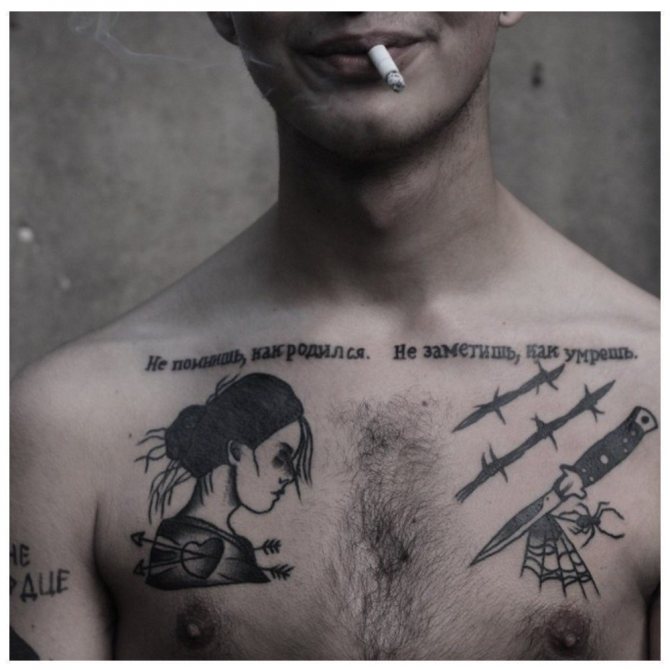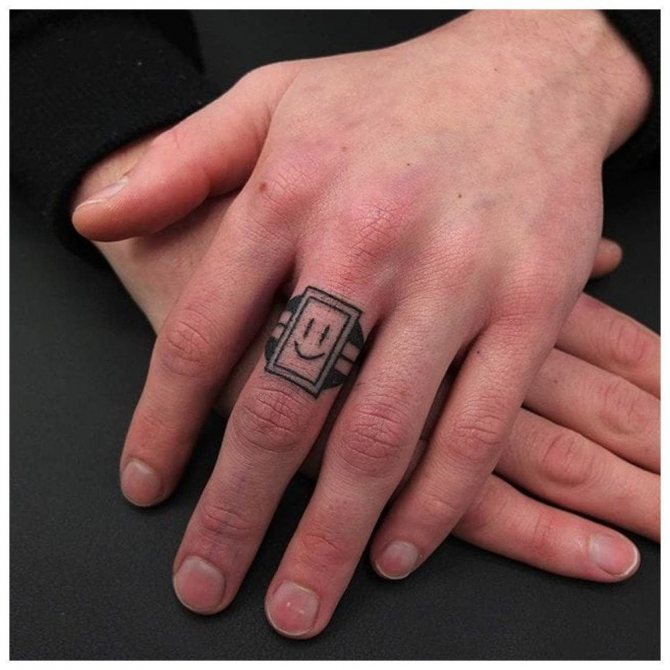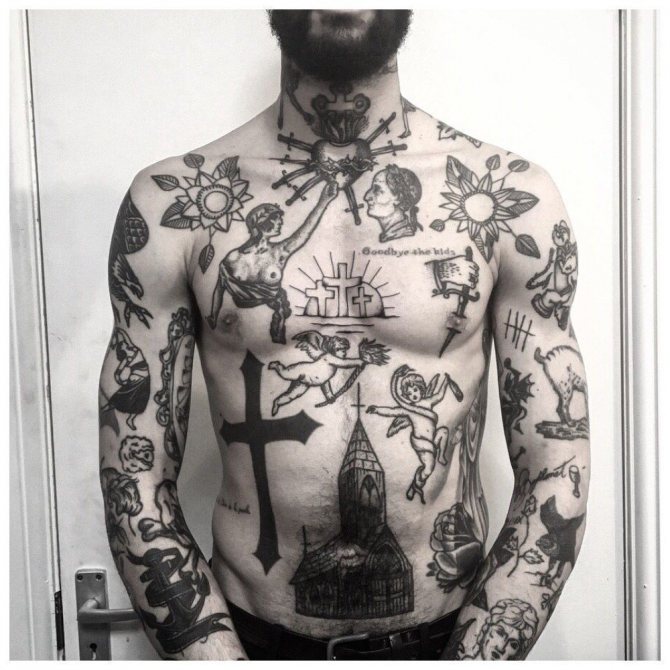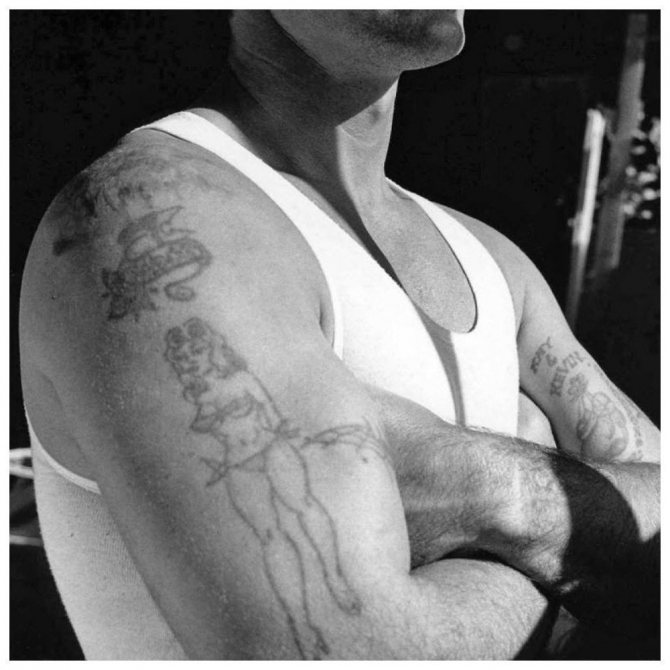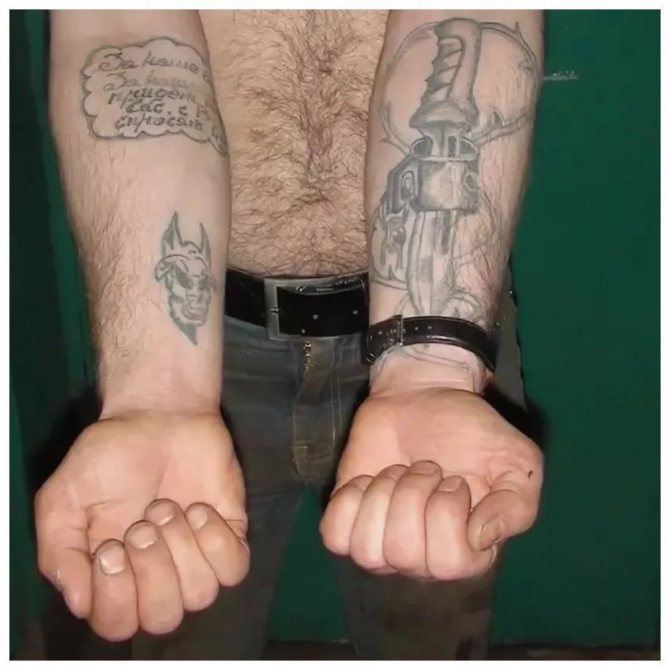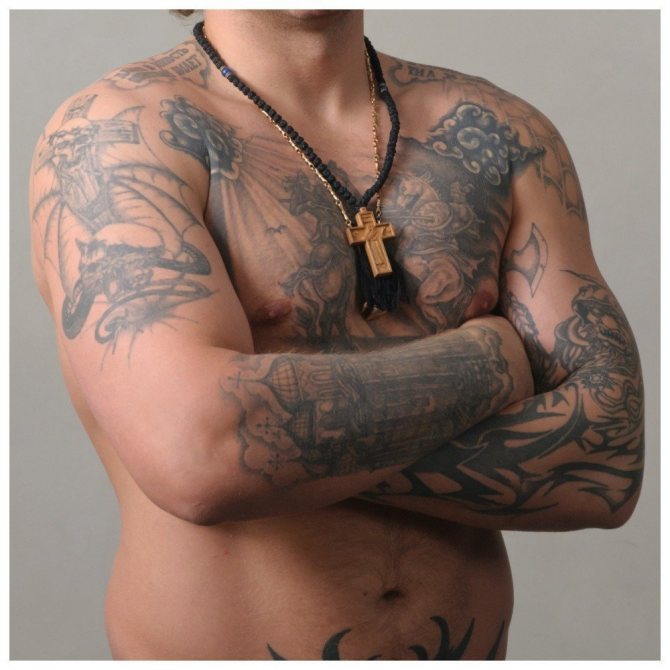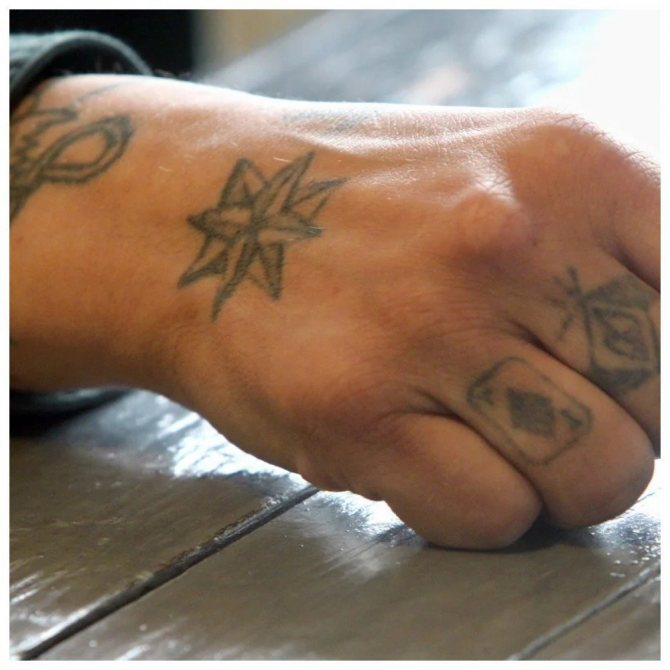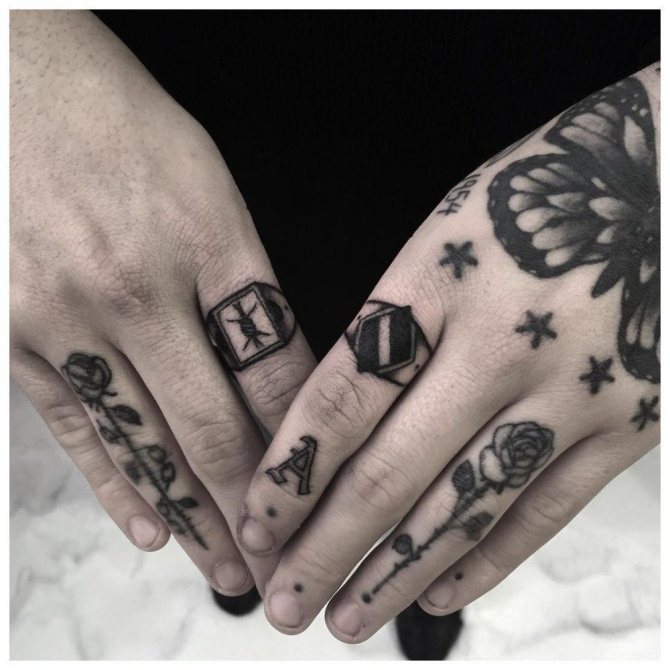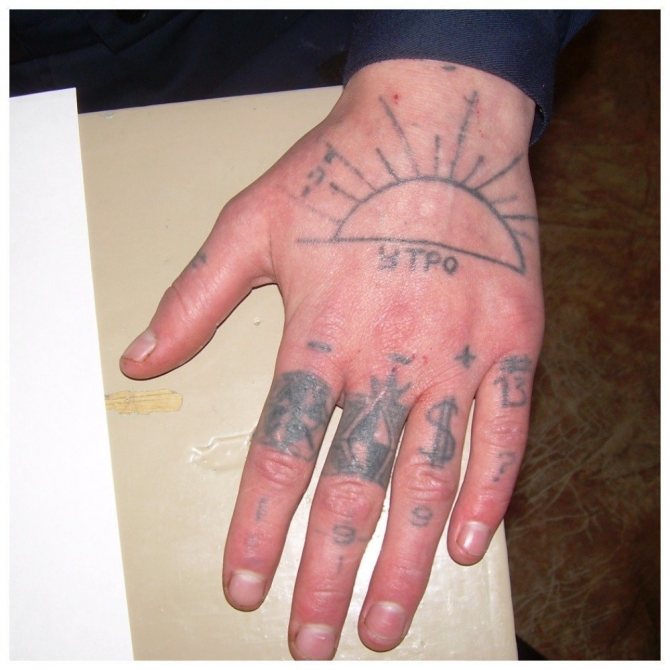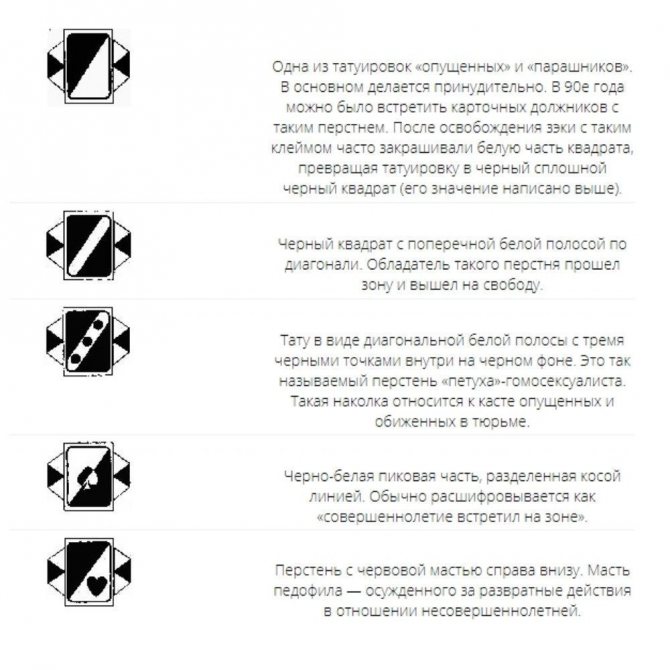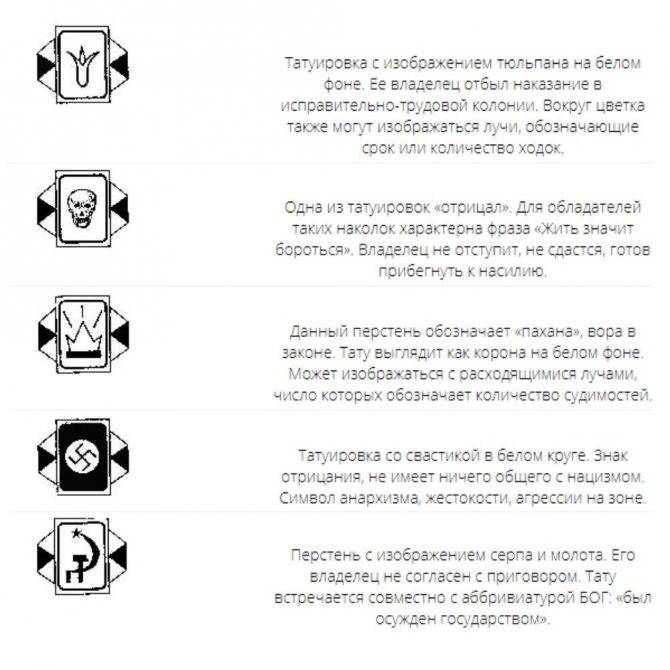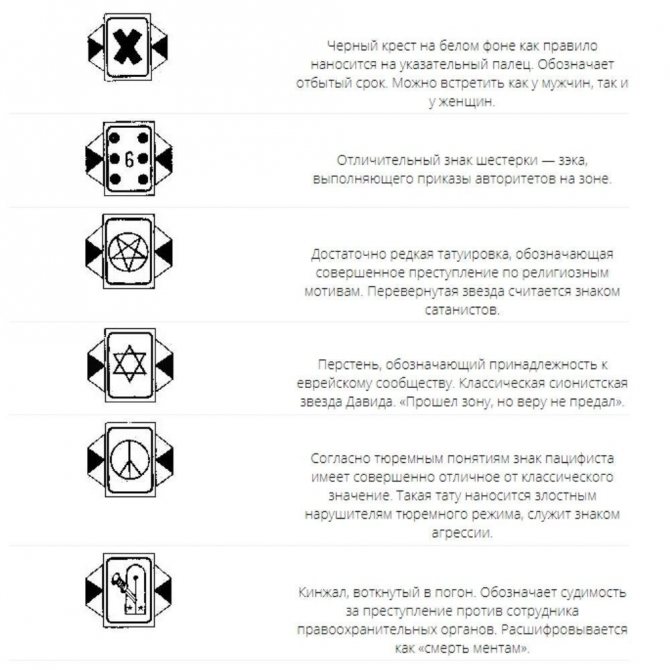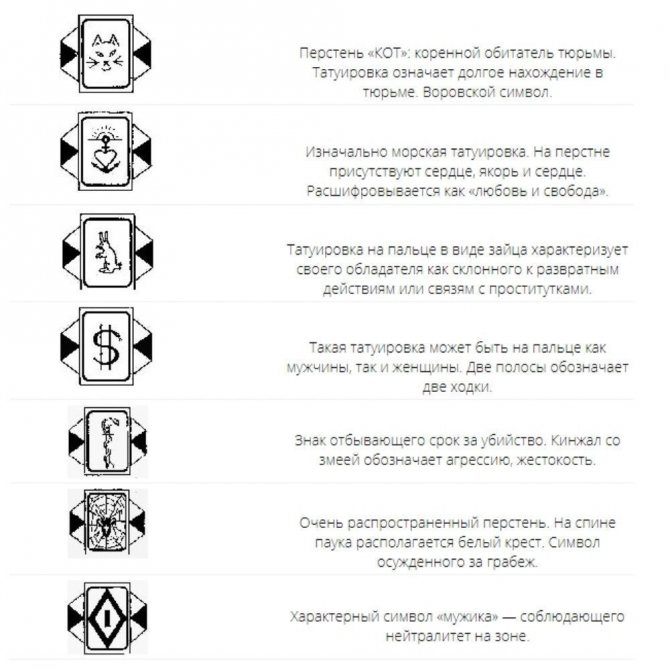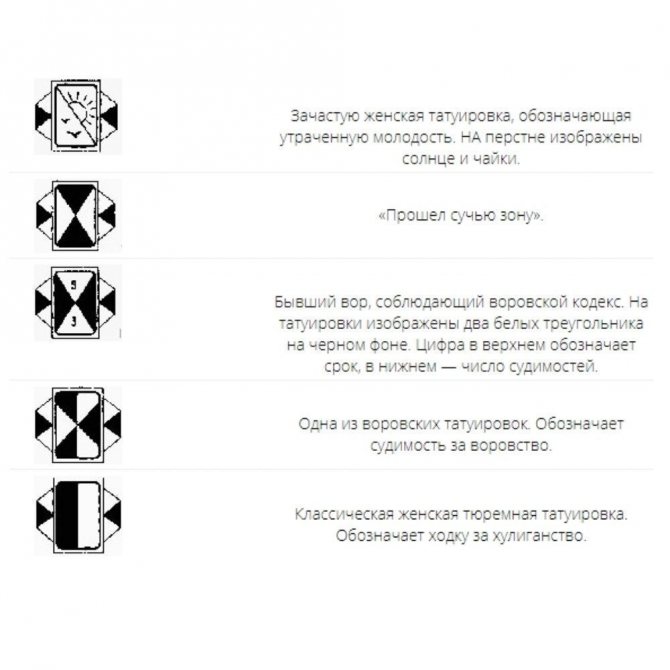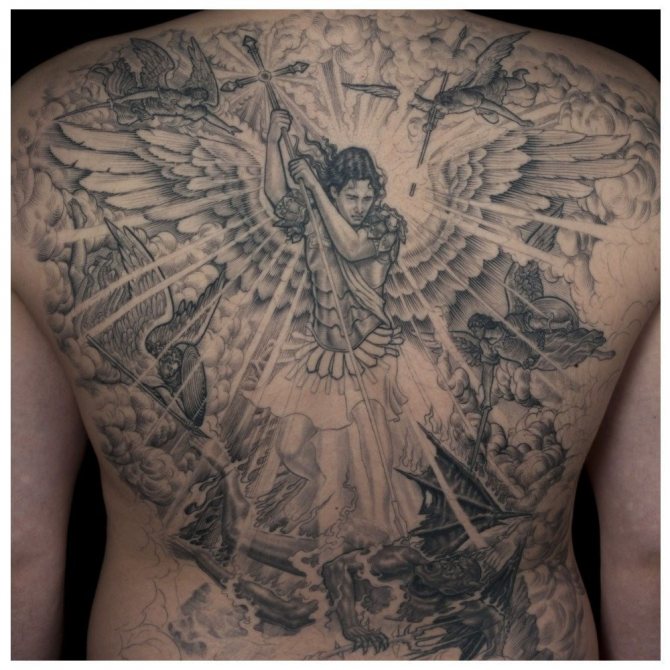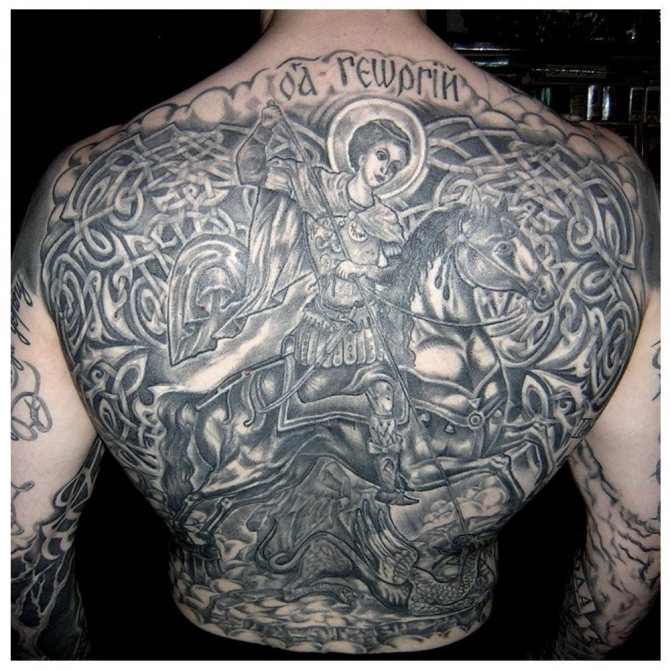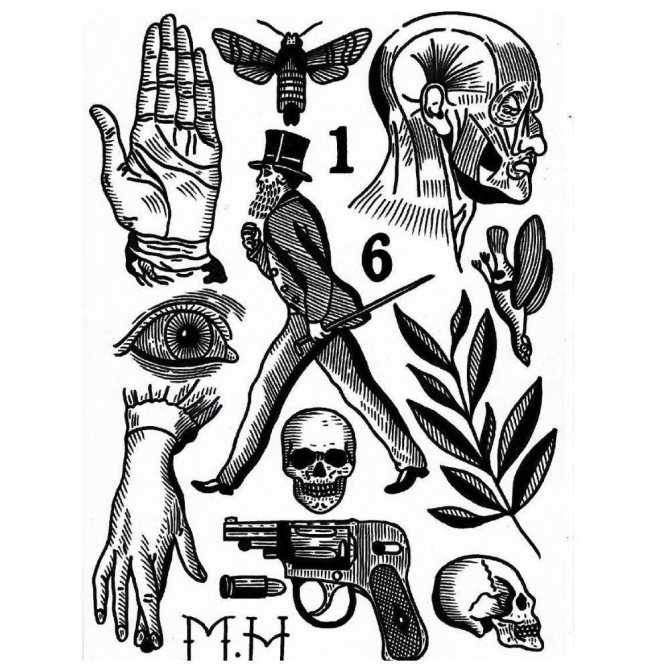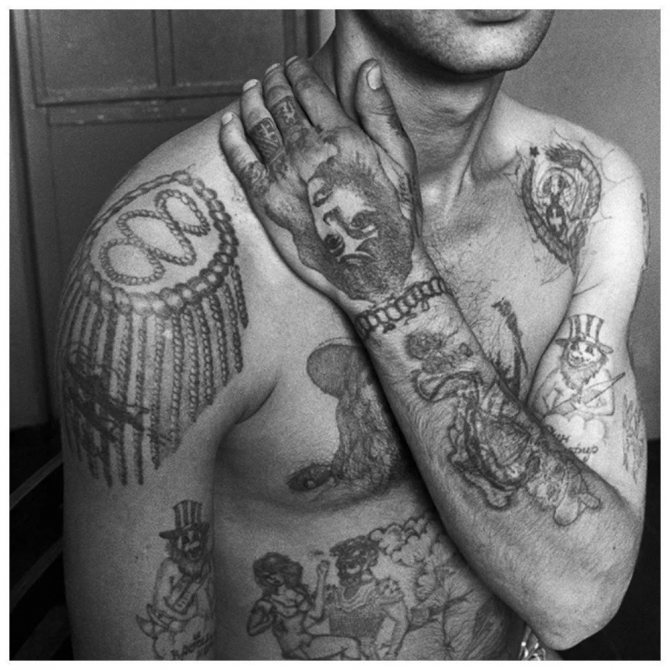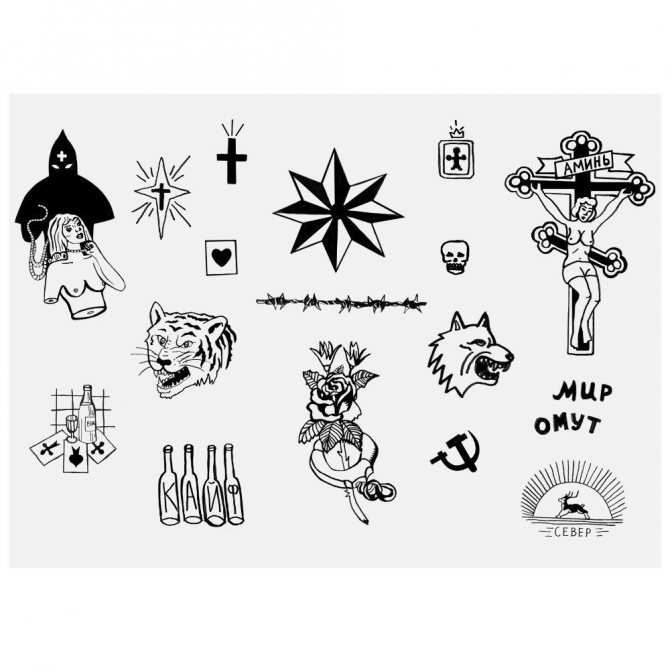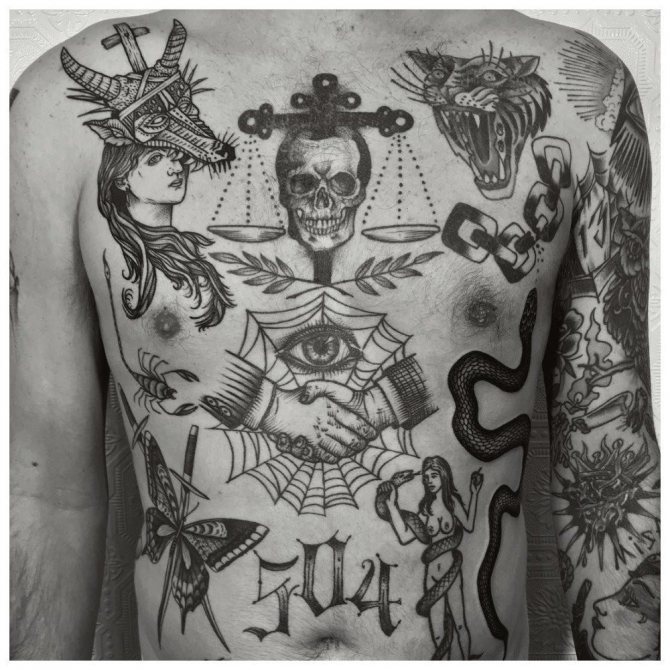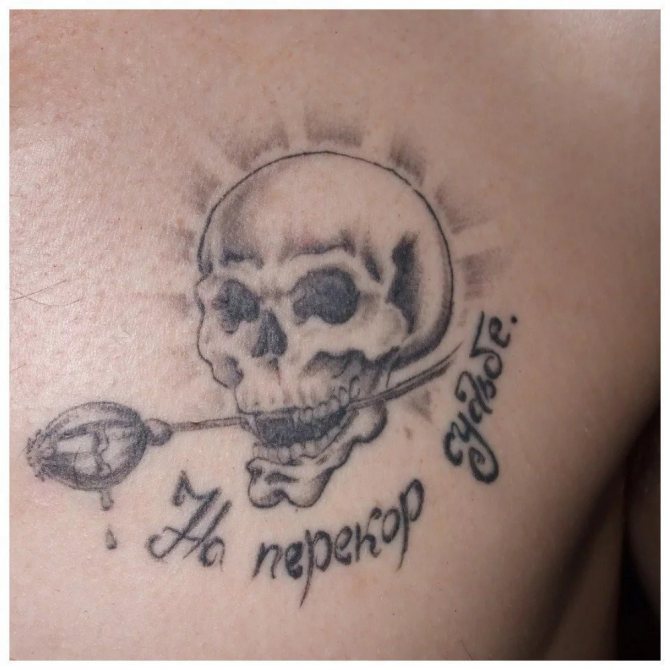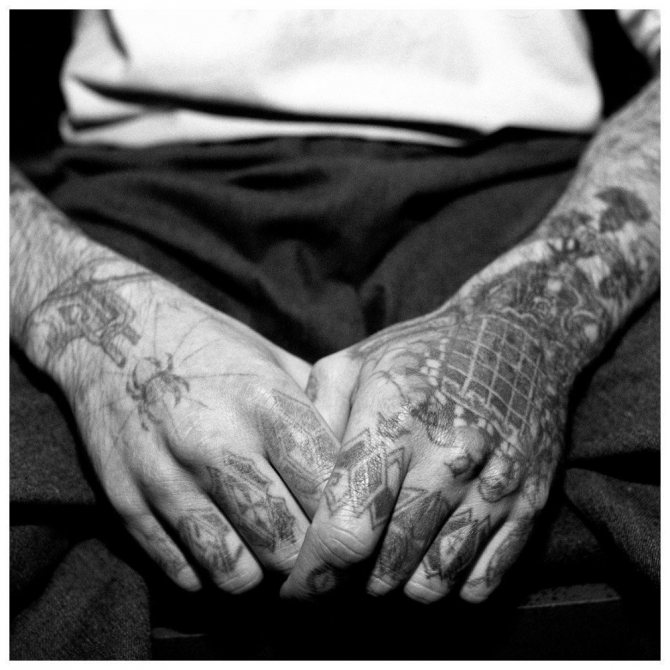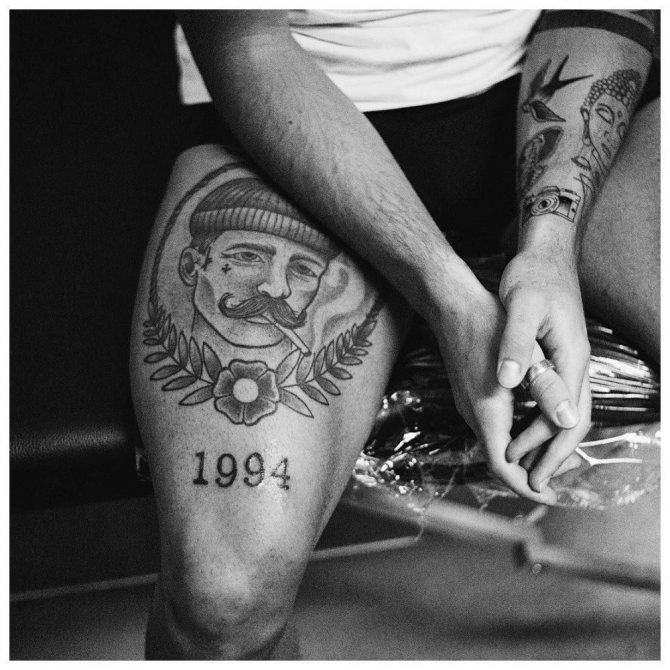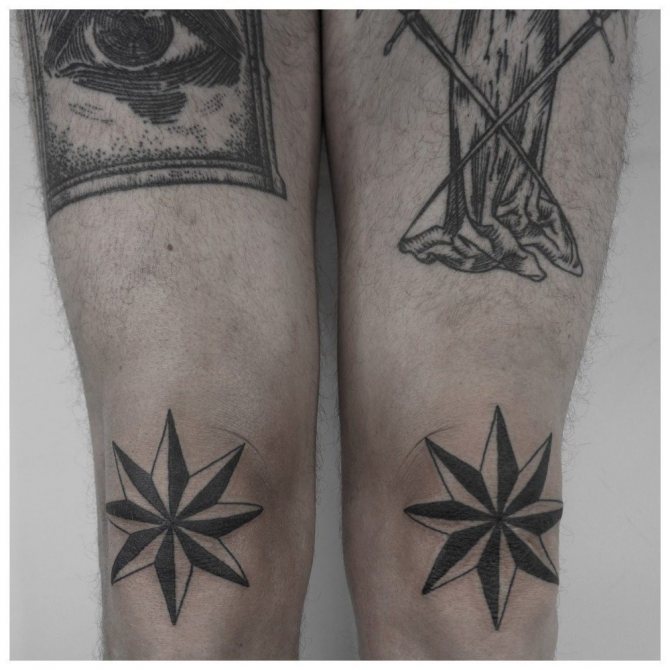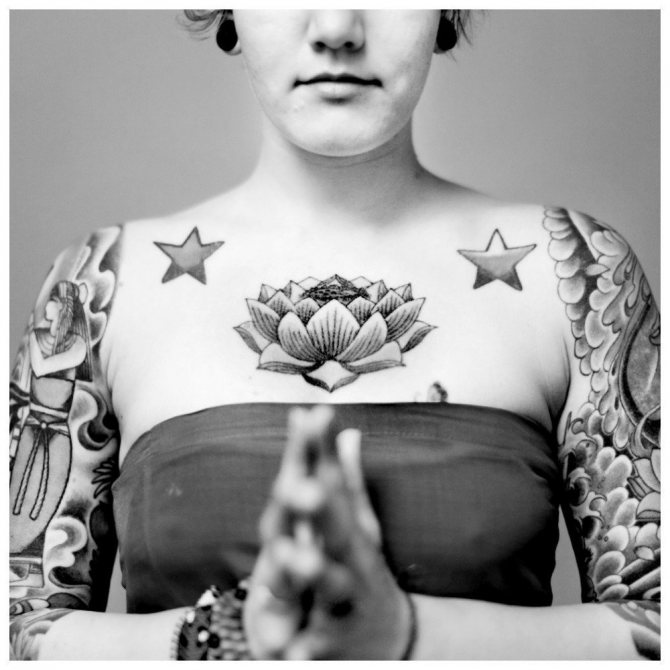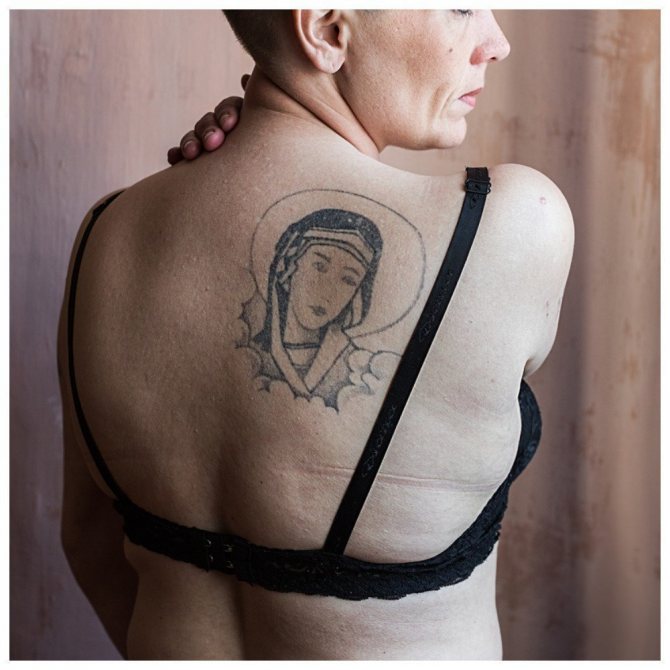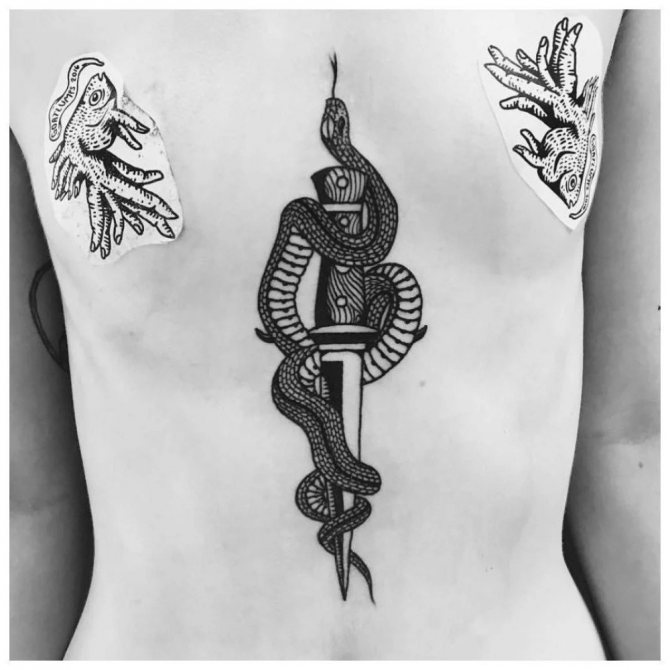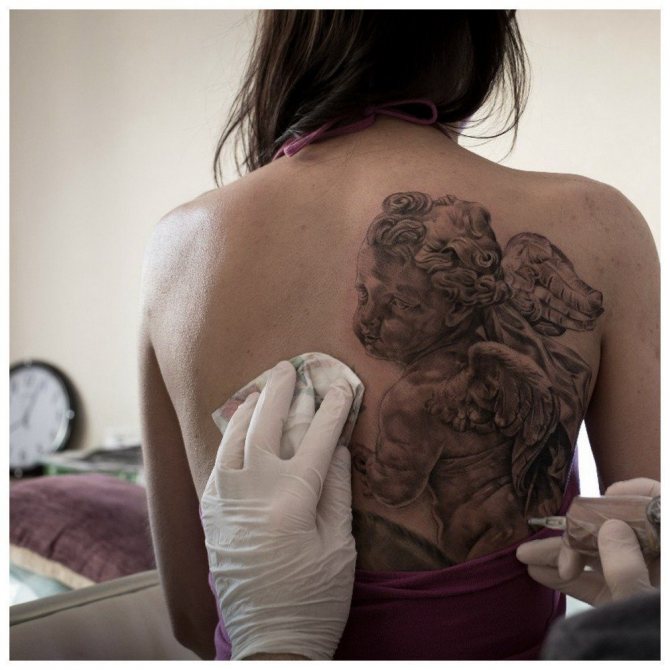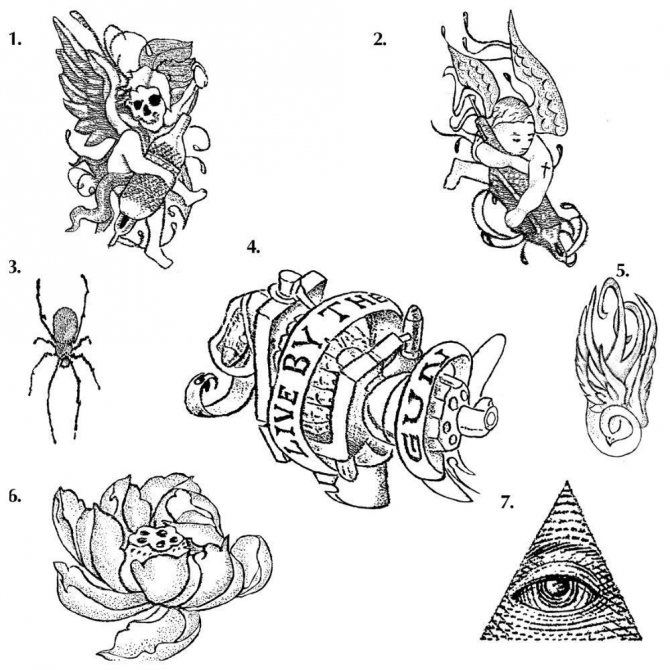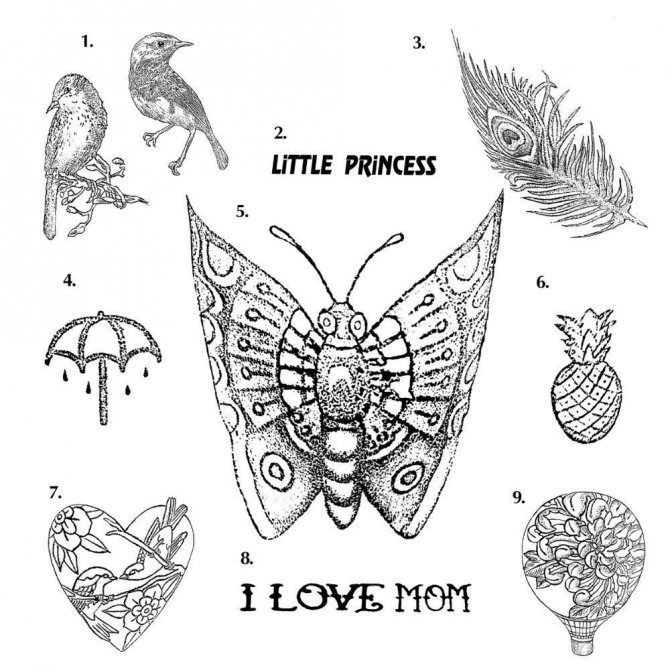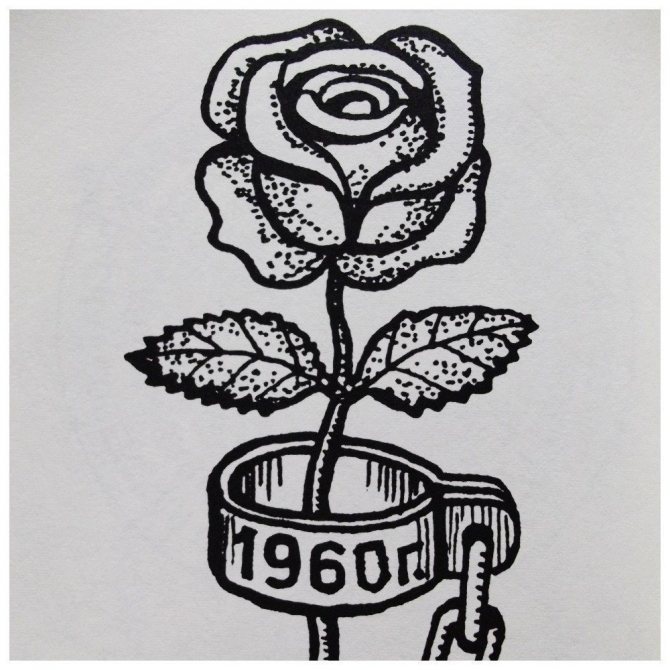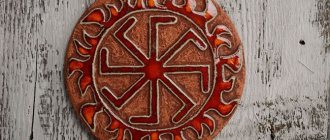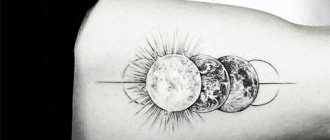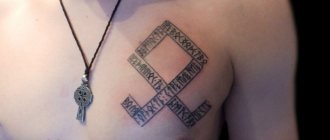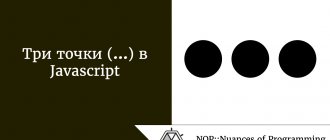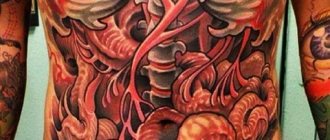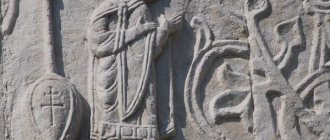- 9432
- 0
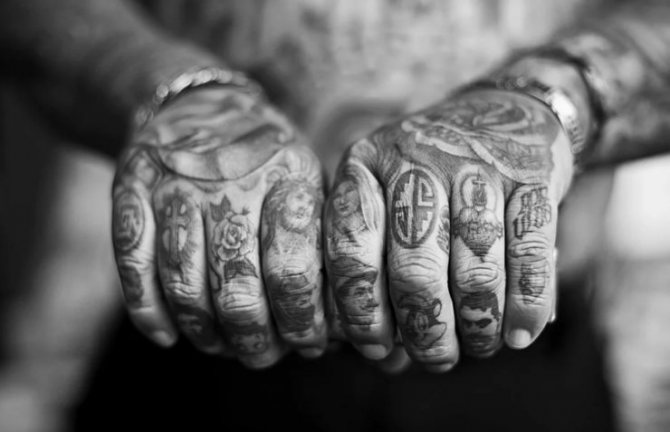
Despite the fact that tattoos appeared long before the existence of the prison regime, it is with him associated a wide spread of tattoos. Initially, zonov tattoos were made to refer to offenders, repeat offenders and even Siberian convicts. However, over time, these concepts have changed significantly, in the article we will tell how exactly.
Criminal tattoos and their meaning
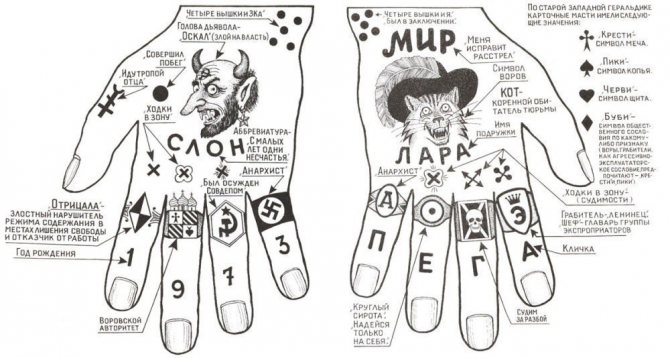

Every tattoo made in prison has a meaning. And not only indicates the status of its owner, but can also mean the amount of time served, the reason for imprisonment and other information.
The most common variants of inmate tattoos have the following deciphering:
- Wolf - leader, means independence;
- Tiger - cruelty, hatred of justice;
- The domes on the church signify the number of "walks."
- Cat - native inhabitant of the prison, also a symbol of good luck and thieves;
- Tattoo of the Mother of God - a talisman for young prisoners;
- A spider is a symbol of a thief;
- Crucifix - symbol of criminal authority;
- Runes or swastika - protest;
- The rising sun - a symbol of freedom, and the rays - the amount of time served.
The meaning of the same tattoo may vary depending on its location. For example, a star on the shoulder is a symbol of a thief in law, can also mean denial of prison laws, and stars on the knees mean love of freedom.
The meaning of the cross tattoo on the back of the prison - strong will and defiance, if the cross is carded - the bearer is a thief. The meaning of the cross tattoo on the lap differs in the types of crucifixion and can mean both faith in God and a particular worldview.
In the dictionary.
The word "lord" is interpreted as "master," "lord," "lord." It comes from the Old English word hlaford (hlafweard) by combining the words hlaf (bread) and weard (keeper). The literal translation of lord is "keeper of bread. This should be understood to mean "keeper of the lands on which bread grows." Thus, the origin of the word "lord" conditions its meaning as keeper, master of the lands.
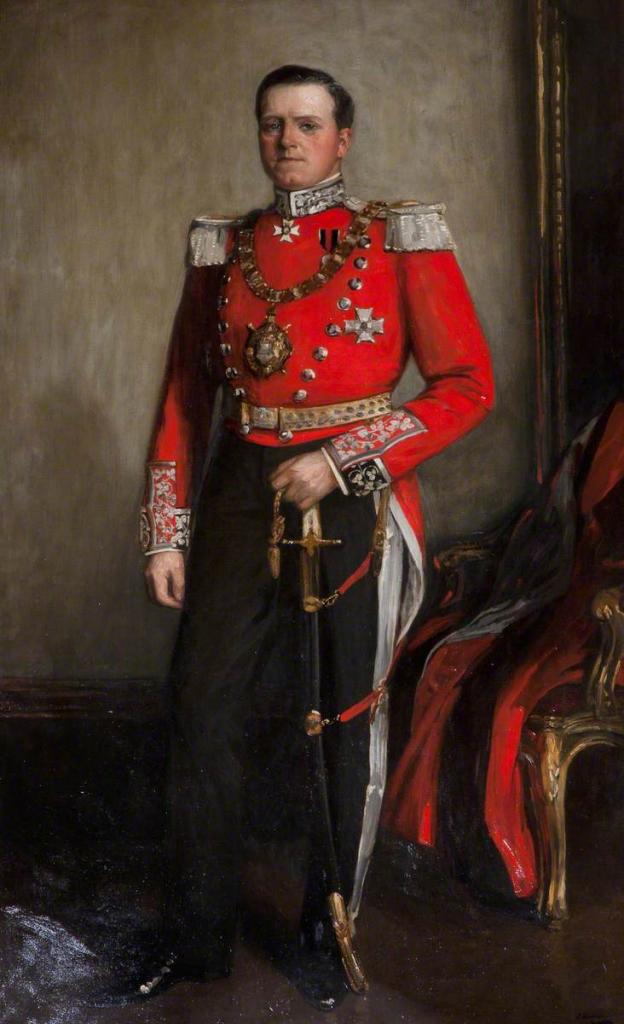

Originally, the title lord was worn by all people who belonged to the feudal estate and who were landowners. In this meaning this title was contrasted with the term "peasantry", which denoted all those who lived on the land of the lord. They had duties and various burdens, and had to be loyal to their feudal lord.
Tattoo rings on the fingers of cons
Finger tattoos are the most common tattoos in the criminal sphere. It is easy to tell from the finger tattoo which caste a prisoner belongs to, what he was convicted of, where he was incarcerated, and even how he relates to law enforcement and the world at large.
In some cases, the tattoo may indicate fatherlessness, being born in prison, and the first crime committed as a minor.
Varieties
Later varieties of the title appear, such as "lord of manor." This is a feudal lord, the owner of lands in Medieval England, received directly from the monarch. This lord was different from the Scottish lords and the English knights of the Gentry, who, although they owned lands, in fact these territories belonged to other feudal lords.
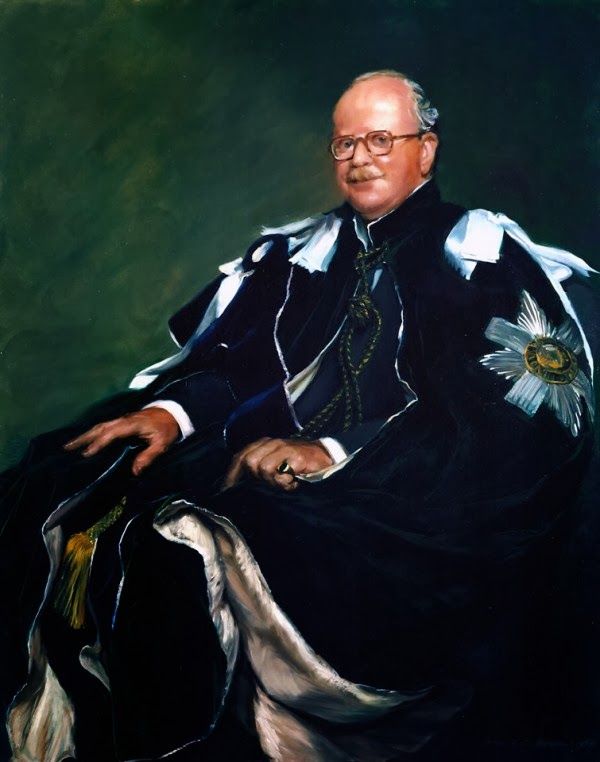

In the thirteenth century, with the emergence of parliaments in England and also in Scotland, the feudal lords gained the opportunity to participate directly in them. And in English there was a separate House of Lords (upper house), also called the House of Peers. Peers were in it by birthright. This distinguished them from other lords, who were obliged to choose their representatives in a separate House of Commons (by county).
Thieves' tattoos on the back and shoulders
There are a number of specific blatant tattoos that can be applied exclusively to the back or shoulders. On another part of the body, the same design can carry a completely different meaning.
The most popular tattoo on the shoulder is an image of the face of Jesus Christ, in second place - the Bible. The symbol of such a tattoo is twofold: in one case it means the religion of the prisoner, and if there is a fire under the main part of the tattoo indicates that the person has burned faith.
The main type of tattoo on the back are images of temples with domes. By such a tattoo is judged the number of times a prisoner has served time: how many domes - so many times he has been in prison. The image of the Virgin Mary is also often used on the back.
The lower ranks
It should be noted that the title lord is often used to denote the four lower ranks of the peerage. Thus, for example, it applied to barons. In fact, they were always referred to as lords. And then the title "Staffordshire" was added, but it was almost never said of the baron "Staffordshire.
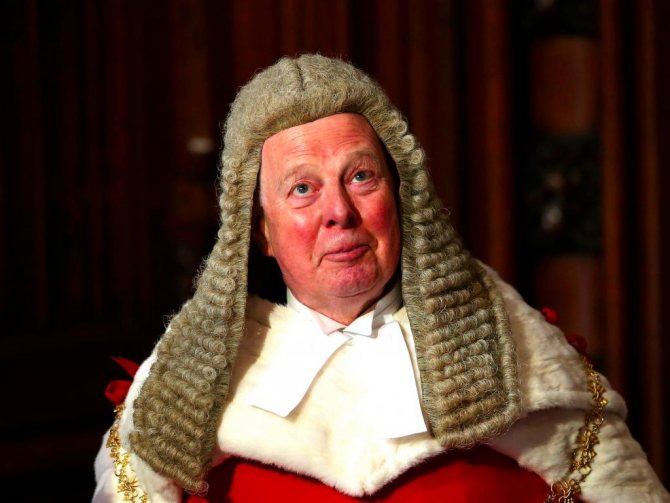

In the Scottish ranking system, the lowest is considered a Lord of Parliament. The granting of such a title, enabled feudal lords, to participate in the Scottish Parliament.
For viscounts, earls and marquesses the title lord was also common. First the rank was called, then the title. It is worth noting that for naming a peer, along with the title lord, it is not necessary to use his surname, for example, of York.
When addressing a male peer personally, the expression My Lord is used, which in English means "my lord. When addressing dukes they say Your Grace, which means "Your Grace.
Tattoo on hands and knees
The main tattoos on the hands are located directly on the fingers. Tattoos on the phalanges of the fingers are the prisoner's calling card. In addition to this often cover the outer part of the palm and forearm nakolkovki.
The main subject of such drawings is religion. Therefore, most often depict the faces of Saints, as an indicator of their belonging to a particular religion, crosses, as a symbol of criminal authority, the Star of David, the crucifixion of Jesus, etc.
A tattoo on one's knees is a symbol that a person is not ready to bend and literally kneel before someone. For example, if a criminal has stars depicted on his knees, it means he loves freedom and refuses to obey the laws.
Religion
When considering prison tattoos and their meaning, it is worth saying that very often prisoners apply drawings with religious meaning. So what do they mean? The Mother of God, mostly on the back or chest, can mean a talisman against any evil, or that the person was on the path of the offender too early, at a young age. Of great significance is the imprinted church on the body of the offender. For example, the number of domes means the number of trips to the prison or the number of years spent in prison. Criminal authorities put crucifixes of various sizes on their bodies, this distinguished the prisoner of the higher criminal hierarchy, and to earn such a tattoo is a great honor. Prisoners could also have bells tattooed on them. This meant that the man had served his time in prison in full, that is, "from bell to bell." They could also paint monks who were writing. It signified a thief-writer who could scrawl any letter with no problem, or it signified someone who was skilled with sharp objects such as a razor or knife.
Women's Prison Tattoos
Female prison tattoos have far fewer meanings than male prison tattoos, but in many ways they are similar. For example, women also get tattoos on their fingers to denote their membership in the thieving caste.
If a woman in the zone gets a tattoo in the form of a rose, butterflies on her shoulder or a female silhouette with a crown, it means she has low social responsibility. The source of such tattoos is the branding of a lily on the shoulder, which was burned in medieval France to girls engaged in prostitution.
Share it with your friends!
Subscribe to our Yandex.Zen channel or Yandex.Messenger
The meaning of the word lord
(from Anglo-Saxon hlaford, landowner, lord; in the feminine, lady) - The English title, common to all peers (see) as well as to their sons, to whom the title is given not officially, but only "by courtesy". There are five degrees of L.: dukes, marquis, counts, viscounts, and barons. Apart from the right to sit in the House of Lords (see the House of Lords), which is inherited by the eldest in the family, the title of lord currently does not give any special rights and advantages, except for the right to coats of arms and crowns, to external signs of respect, to the title "my dear cousin" (truest and well beloved cousin), with which the monarch, according to custom, addresses each lord. The other rights, such as the right to be tried in the House of Lords for treason and some other crimes, exemption from arrest for debts and special protection in courts of law against insults (insulting a lord was considered a grave offence, scandalum magnum), the right of free access to the king - until recently considered the main, even the only advantages of Lords - now almost completely lost their practical significance. The usual address to L. is my lord (mylo r d), to his wife mylady (mylady). The lordship is bestowed by the supreme authority on the recommendation of the ministry, mostly to large landowners, but sometimes the title L. is bestowed on a person who has become famous in literature (L. Macaulay) or politics (L. Chatham, D. Beaconsfield). The title of L. is inherited in the male tribe, but in the absence of legitimate male heirs women may also receive it. When a family dies out, the title is usually given to a collateral relative (the title of the Marquis of Devonshire, for example, passed from family to family several times during five centuries; see the corresponding article). Sometimes the title is given directly to a woman; for example, Canning's widow received it for herself and her descendants; Disraeli's wife received the title of Countess Beaconsfield in 1868, while her husband did not agree to accept the title until 1876. Thus, for example, Robert Cecil in his father's lifetime in 1865 inherited from his elder brother the title of Viscount Crenbourne, and in 1867, when his father died, he became the Marquis of Salisbury; the elder son of the Duke of Devonshire in his father's lifetime enjoyed the title of Marquis of Gartington. The title of L. is lost by the bill of attainder (on account of crime). A lady by birth does not lose her advantages when she marries a non-lord; but if she acquired the title through marriage, she loses it when she remarries a non-lord. The wives of baronets (see) are also entitled to the title of lady by courtesy. At the present time there are 490 English titles, 85 Scottish titles, 177 Irish titles; a total of 752 L. (See Upper House and Nobility). In addition to lords temporal, there are also lords spiritual. In the Middle Ages, i.e. before the Reformation, their number was very large, but since the time of Henry VIII lords spiritual are only 26 bishops, of whom only 24 sit in the House of Lords (those junior in time of appointment do not). Bishops do not receive the title L. hereditarily, but only ex officio. Also ex officio some officials bear it, such as: Л. Chancellor, L.-Lieutenant, L.-Lieutenant of Ireland, L.-Treasury, L.-Chief Justice, L.-Appeal Judge, L.-Admiralty, L.-Mayor. These persons are addressed with the appellation "my lord" only in official relations; in common life they are not entitled to it.
В. V-ov.
Beasts and Birds
The prison meaning of the wolf tattoo is quite interesting. The abbreviation alone can tell you what it means. "WOLF" - a thief's breath, a cop's lid. Distinguishes people who hate law enforcement officers and are ready to deal with them at any time. If the prisoner carries a tiger on his body, it means he has a grudge against everyone, especially against the authorities. It can also distinguish a person who is very cruel and evil. A drawn cat is a symbol of thieves. If he is also carrying a bow, it means that the person has sold out to the cops, for which he may be punished from time to time by the inhabitants of the prisoners' world. The profile of a bull denotes a man who is a fighter and can act on behalf of the main authority in various fights. Also, this drawing distinguishes a person who is violent and quick to rage. What does the "scorpion" tattoo signify? The meaning of the prison has several different variations. So, it can simply denote the sign of the zodiac, but this is its most harmless meaning. Such a tattoo can determine the former special forces. If the claws of the scorpion are open, it means that the person was a member of hostilities (which is welcome in the zone). Scorpion nabbed also those who were in solitary confinement. If the scorpion is drawn under the gun, it indicates a person who participated in hostilities in Chechnya.
